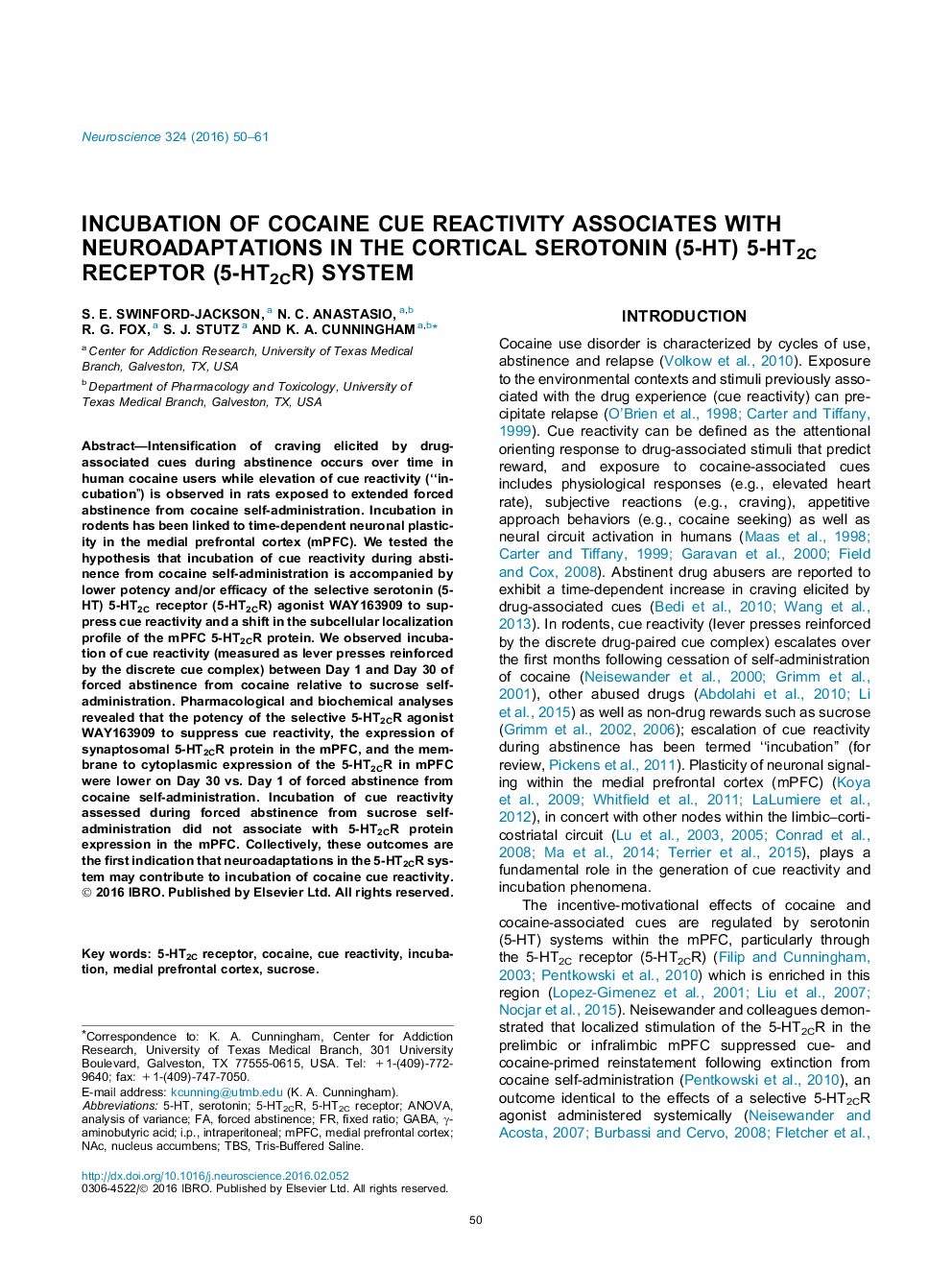| Article ID | Journal | Published Year | Pages | File Type |
|---|---|---|---|---|
| 4337302 | Neuroscience | 2016 | 12 Pages |
•Cue reactivity incubates during forced abstinence from cocaine- or sucrose-taking.•Incubation aligns with lower potency of 5-HT2CR agonist to suppress cocaine cue reactivity.•Incubation of cocaine cue reactivity associates with lower 5-HT2CR expression in mPFC.•Membrane to cytoplasmic 5-HT2CR ratio inversely correlates with cocaine cue reactivity.
Intensification of craving elicited by drug-associated cues during abstinence occurs over time in human cocaine users while elevation of cue reactivity (“incubation”) is observed in rats exposed to extended forced abstinence from cocaine self-administration. Incubation in rodents has been linked to time-dependent neuronal plasticity in the medial prefrontal cortex (mPFC). We tested the hypothesis that incubation of cue reactivity during abstinence from cocaine self-administration is accompanied by lower potency and/or efficacy of the selective serotonin (5-HT) 5-HT2C receptor (5-HT2CR) agonist WAY163909 to suppress cue reactivity and a shift in the subcellular localization profile of the mPFC 5-HT2CR protein. We observed incubation of cue reactivity (measured as lever presses reinforced by the discrete cue complex) between Day 1 and Day 30 of forced abstinence from cocaine relative to sucrose self-administration. Pharmacological and biochemical analyses revealed that the potency of the selective 5-HT2CR agonist WAY163909 to suppress cue reactivity, the expression of synaptosomal 5-HT2CR protein in the mPFC, and the membrane to cytoplasmic expression of the 5-HT2CR in mPFC were lower on Day 30 vs. Day 1 of forced abstinence from cocaine self-administration. Incubation of cue reactivity assessed during forced abstinence from sucrose self-administration did not associate with 5-HT2CR protein expression in the mPFC. Collectively, these outcomes are the first indication that neuroadaptations in the 5-HT2CR system may contribute to incubation of cocaine cue reactivity.
